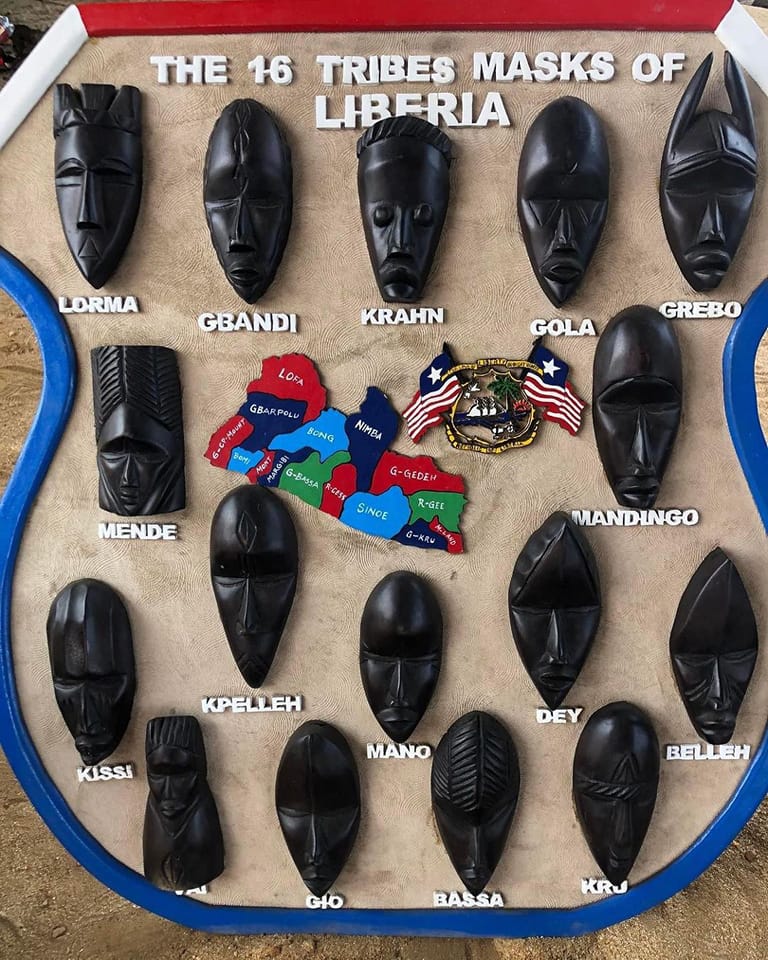
GBEHLAY GEH, Nimba County – To enable Liberian school-going children in Gbehlay Geh, in Karnplay Nimba County, to learn their native tongue as they grow up, Nazarene Solid Foundation school has incorporated the Dan (Gio) language into the school’s curriculum for pupils.
__________________
By: Vivian Woyah, FeJAL Mentorship Fellow
__________________
According to the Principal of the school, Rev. Tee Latan observation carried out over the years revealed that most Liberian children are growing up without speaking their parents’ native dialects. As such, he said introducing the teaching of the Gio language in their school is geared towards building a generation of young children to uphold their cultural heritage.
Liberia is divided into fifteen political subdivisions (counties) having sixteen tribes, which include, Loma, Kissi, Vai, Belleh (Kuwaa), and Dei (Dey), Kpelle, Mano, Kru, Grebo, Bassa, Mandingo, Krahn, Gola, Gbandi, and Dan (Gio).

The school administration said they launched a pilot phase of the Dan language teaching in 2017, benefiting at least 36 students at the start of the school year, and it later grew to 162 students during the second semester targeting students from the sixth-grade to ninth-grade level.
“When we first introduced teaching Gio, it was like fun to the students but now some of the students are translating some English books in Dan,” Rev. Latan told this Reporter.
To date, the number of students at the school being taught the Gio language has increased to 600 students to current.
We are happy to learn the Dan (Gio) language because it helps us to spell some words from English to Dan,” said Nehwon Dahn, of the from 9th grade.
Reflecting on their journey, Nehwon added that, “At first, it was hard, but now it is fine and we like it, because we could not speak our own tribe,” Nehwon said.
Parents and community residents who spoke with this paper commended the school for introducing the Dan Language in the school and are calling on other schools across the country to begin doing the same, in order to help the upcoming generation of Liberia youths not to lose their heritage of not being able to speak their local tribe(s).
Martha Berh, one of the parents who spoke with our reporter said, the introduction of the language program in her children’s school has made her children now able to have basic knowledge and are beginning to relate to her during basic communication in Gio.
The mother is therefore, calling on the national government through the Ministry of Education to ensure that schools Nimba and other schools across the country pick any one of the 16 Liberian ethnic groups to be taught in schools. She added that when this is done, the present generation and the one after would not lose their cultural values and heritage as many Liberian children can only speak English and cannot speak their tribes.
“It is because of this Nazaren Solid Foundation School my children can now speak their dialect (tribe) fluently,” Martha Berh said.
Sampson Gblinwon, one of the Dan language teachers said, agrees with Berh that the Liberian languages be taught across schools in the country.
Other experts have argued that Liberian children cannot be blamed for their inability to speak their local tribes because the Liberian society during the civil wars and after the wars was more focused on surviving the hostilities and recovering from the 14 years of bloodshed.
However, there is no data to show the percentage of Liberian children born during the war and the post-war eras who can speak their local tribes, but in an informal interaction with most Liberian children and youth; often admit to speaking just English. This story is produced by FeJAL Mentorship Fellow, through the support of Internews USAID, Year 3 Media Activity Reporting Program


